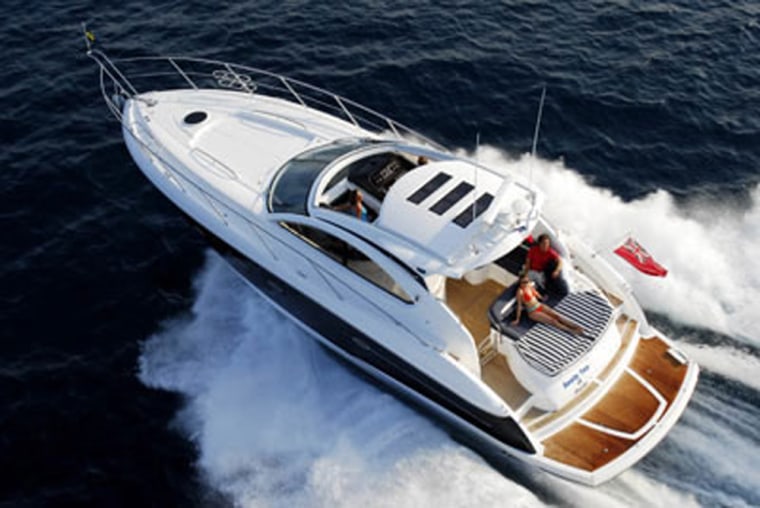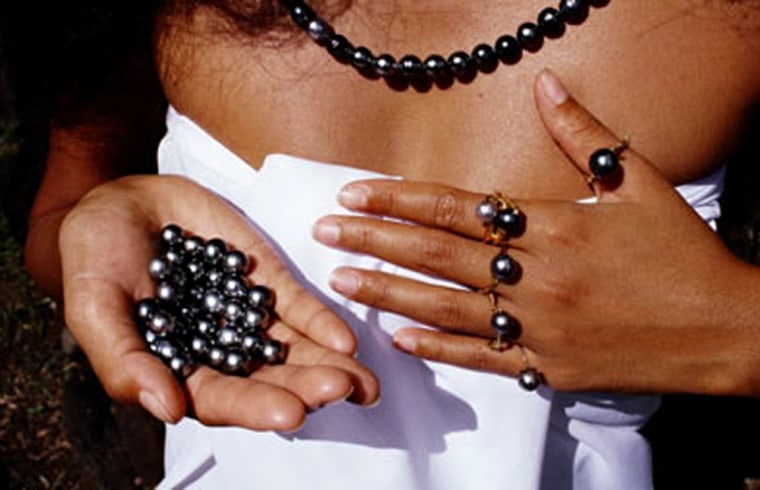In the narrow alleyways of Beijing and Shanghai, China, there are many bargains to be had: silk pajamas, embroidered panels and jade, both real and faux.
But in recent years, a bevy of luxury brands have hung out gleaming new shingles: Armani, Prada and Valentino. They aren't the first upscale Western brands to tap into China's growing appetite for luxury goods. Hoteliers like The Four Seasons, Marriott-owned Ritz-Carlton and Peninsula Hotels; restaurateur Jean Georges Vongerichten; and the French Evian Spa all have outlets in Beijing or Shanghai, where consumers are displaying an increased appetite for all things designer.
In many cases, their deluxe wares and services are available at lower prices in China than in the U.S. or other parts of the world. Upscale goods there are priced for a market which, though getting richer and more discerning, is on average less wealthy than the Western market. Take a night at the Four Seasons in Shanghai, where room rates start at $275. Even with 15% sales tax, that's just $316, less than half the cost for a night at the Four Seasons New York, where rooms start at $763, tax included.
Or maybe you want dine at Jean Georges, Vongerichten's restaurant in Shanghai's high-end Three on the Bund mini-mall. (Giorgio Armani, the Evian Spa, and several more top-tier restaurants are also located in this restored Colonial building.) According to Zagat Survey, dinner for one at Jean Georges in New York costs $98 per person, including one drink and tip. At the Shanghai location, dinner costs $60 per person--and, unheard of for Americans--the meal is not taxed.
T

he rub: Last April, China levied a luxury tax of between 10% and 20% on certain luxury imports, including golf clubs, watches and yachts.
"The Chinese government imposes a 17% VAT, another 10% luxury tax, plus procedural fees," on boat imports, says Ivan Liu, chief operational officer of Sunseeker China, a high-end, U.K.-based yacht manufacturer.
A basic Portofino 47-foot yacht, one of Sunseeker's best sellers, costs about $1 million in New York City, when state sales tax of 8.375% is tacked on. In China, the same boat costs over $1.1 million after tax, or $125,000 more.
If you're a foreigner in the market for a luxury yacht, odds are you aren't buying it in China. But nor should you splurge for Callaway golf clubs or an Omega watch, all of which, as luxury imports, are subject to the new taxes.
Normally, Chinese merchants and boutiques do not charge their customers tax, which is part of what makes the new luxury tax there seem so excessive.
"It's traditional in China. We never charge customers tax," says Amy Lin, founder and proprietor of Pearls By Amy, a local jewelry store with outlets in Shanghai and Beijing. That's part of what makes her pieces, polished strands of pearls and other semi-precious stones, so affordable. A 17-inch strand of black Tahitian pearls, measuring 10 to 12 millimeters each, will run you a maximum of $8,500 at one of her boutiques. A similar necklace at Tiffany (nyse: TIF - news - people ) might cost $20,000--or more.
And what about the classic Chinese travel bargain--custom-made clothing? We believe everyone should have at least one bespoke suit made in their lifetime, and in China, it's an eminently affordable endeavor. Mr. Zhu, a Shanghai-based tailor who operates out of a small storefront in the city's Xuhui district, will measure you up and down and make a men's suit in your choice of fabric for just $113. A custom-made suit at Fifth Avenue men's retailer Ermenegildo Zegna, on the other hand, could set you back almost $8,000; for that price, you could have a wardrobe of 71 suits from Mr. Zhu.
Working with retailers here and in China, hotel concierges and some of the savviest global consumers we know, we compiled a list of the luxury purchases that are worth the price of a plane ticket to Beijing--and the things you should never even think about buying on Chinese soil. Happy shopping.
